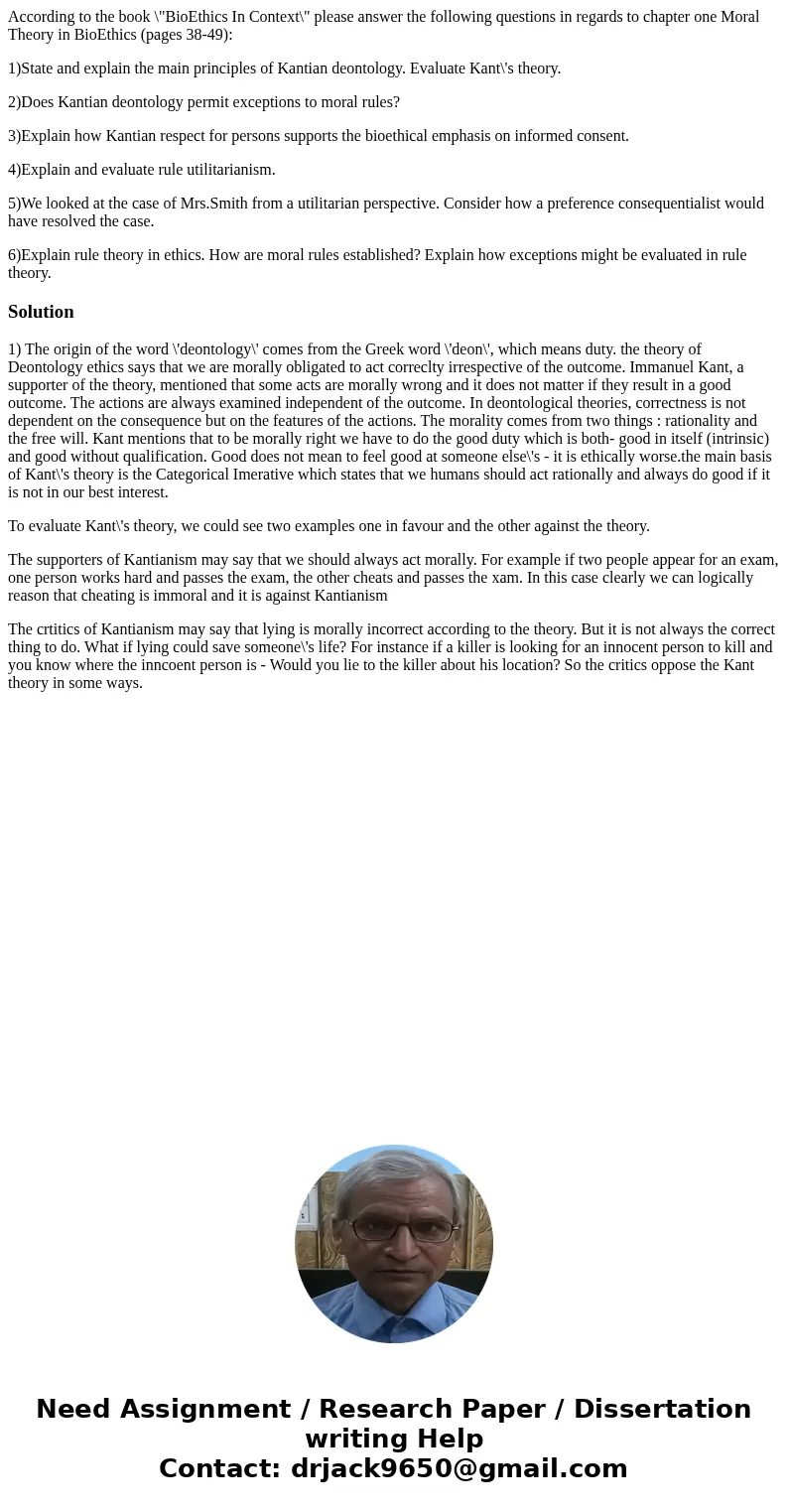According to the book BioEthics In Context please answer the
According to the book \"BioEthics In Context\" please answer the following questions in regards to chapter one Moral Theory in BioEthics (pages 38-49):
1)State and explain the main principles of Kantian deontology. Evaluate Kant\'s theory.
2)Does Kantian deontology permit exceptions to moral rules?
3)Explain how Kantian respect for persons supports the bioethical emphasis on informed consent.
4)Explain and evaluate rule utilitarianism.
5)We looked at the case of Mrs.Smith from a utilitarian perspective. Consider how a preference consequentialist would have resolved the case.
6)Explain rule theory in ethics. How are moral rules established? Explain how exceptions might be evaluated in rule theory.
Solution
1) The origin of the word \'deontology\' comes from the Greek word \'deon\', which means duty. the theory of Deontology ethics says that we are morally obligated to act correclty irrespective of the outcome. Immanuel Kant, a supporter of the theory, mentioned that some acts are morally wrong and it does not matter if they result in a good outcome. The actions are always examined independent of the outcome. In deontological theories, correctness is not dependent on the consequence but on the features of the actions. The morality comes from two things : rationality and the free will. Kant mentions that to be morally right we have to do the good duty which is both- good in itself (intrinsic) and good without qualification. Good does not mean to feel good at someone else\'s - it is ethically worse.the main basis of Kant\'s theory is the Categorical Imerative which states that we humans should act rationally and always do good if it is not in our best interest.
To evaluate Kant\'s theory, we could see two examples one in favour and the other against the theory.
The supporters of Kantianism may say that we should always act morally. For example if two people appear for an exam, one person works hard and passes the exam, the other cheats and passes the xam. In this case clearly we can logically reason that cheating is immoral and it is against Kantianism
The crtitics of Kantianism may say that lying is morally incorrect according to the theory. But it is not always the correct thing to do. What if lying could save someone\'s life? For instance if a killer is looking for an innocent person to kill and you know where the inncoent person is - Would you lie to the killer about his location? So the critics oppose the Kant theory in some ways.

 Homework Sourse
Homework Sourse